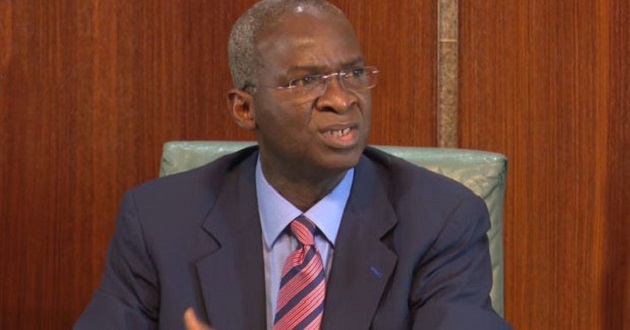Business
Nigerian govt owes road contractors N392bn —Fashola

The Nigerian government’s indebtedness to construction companies handling 711 road projects in Nigeria now stands at N392 billion, Minister of Works and Housing Babatunde Fashola said on Wednesday.
The figure is 42% bigger than the allocation for road projects in the proposed 2021 budget, which is N276 billion.
Mr Fashola told members of the Senate Committee on Works in Abuja during his defence of the 2021 budget for the works and housing ministry, that “With the situation on ground, a stop has come for new projects and the country needs to prioritise the existing ones in order to complete some of them,” he said.
According to him, government requires fund in the region of N6.62 trillion to finance the 711 road projects across Nigeria.
He added that much as the resources needed to accomplish that are not available at the moment, prompting government to concentrate on the essential ones.
“The situation on ground requires us to cut our coat according to our cloth and not according to our size because no good will come out of more new road projects now.”
The 711 road projects have been divided into four broad categories on the basis of funding and execution.
First is the highway projects funded with the Presidential Infrastructure Development Fund. Such projects include the 2nd Niger Bridge, Lagos-Sagamu-Ibadan dual carriage way and the rehabilitation of Abuja-Kaduna-Kano dual carriage way.
Read also: ROAD INFRASTRUCTURE: Nigerian govt owing contractors N336bn —Fashola
The second category comprises highway projects funded with the Sovereign Sukuk Fund involving 44 roads in 6 geopolitical zones.
The third class includes highway projects funded under the tax credit like the Apapa-Wharf Road in Lagos, Lokoja-Obajana-Kabba-Ilorin Road, and the Apapa-Oworonsoki-Ojota Expressway, among others.
Those in the fourth category, Fashola said, are highway projects funded from multilateral loans.
Adamu Aliero, chair of the committee, recommended that government consider financing some of the projects from pension funds.
“The Central Bank of Nigeria seems to be in the best position to work out such arrangement.
“It will be helpful if that type of funding can be put together,” Fashola stated.
Join the conversation
Support Ripples Nigeria, hold up solutions journalism
Balanced, fearless journalism driven by data comes at huge financial costs.
As a media platform, we hold leadership accountable and will not trade the right to press freedom and free speech for a piece of cake.
If you like what we do, and are ready to uphold solutions journalism, kindly donate to the Ripples Nigeria cause.
Your support would help to ensure that citizens and institutions continue to have free access to credible and reliable information for societal development.






















